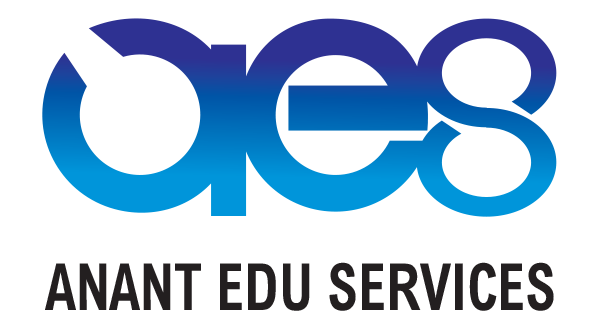Introduction
Competitive exams are a common phenomenon in today’s academic and professional landscape, serving as gateways to various opportunities and advancements. Whether it’s entrance exams for prestigious universities, recruitment tests for government jobs, or certification exams for professional qualifications, cracking competitive exams can open doors to success and fulfillment. In this article, we’ll explore effective strategies to help you crack competitive exams and achieve your goals.
Understanding Competitive Exams
Competitive exams are assessments designed to evaluate candidates’ knowledge, skills, and aptitude in a competitive environment. They come in various forms, including entrance exams for admissions to educational institutions, recruitment tests for employment opportunities, and certification exams for professional qualifications. Competitive exams play a crucial role in determining candidates’ eligibility and suitability for specific roles or opportunities in various fields.
Developing a Winning Mindset
One of the first steps to cracking competitive exams is to cultivate a winning mindset. This involves cultivating confidence in your abilities, maintaining a positive attitude, and setting realistic goals for yourself. Believing in your potential and staying focused on your objectives can help you stay motivated and overcome challenges along the way.
Effective Study Strategies
Effective study strategies are essential for success in competitive exams. Begin by developing a study schedule that allocates sufficient time for each subject or topic. Use time management techniques such as the Pomodoro Technique to maximize productivity and minimize distractions. Break down complex concepts into smaller, manageable chunks, and prioritize areas where you need the most improvement.
Utilizing Resources
Make the most of available resources to enhance your preparation for competitive exams. This includes textbooks, online resources, study materials, and reference guides relevant to your exam syllabus. Consider enrolling in coaching classes or online courses conducted by experienced instructors who can provide valuable insights, tips, and strategies for exam success.
Practicing Mock Tests
Mock tests are invaluable tools for exam preparation as they simulate the actual exam environment and help you gauge your readiness. Allocate time to regularly practice mock tests under timed conditions, and analyze your performance to identify strengths and weaknesses. Focus on understanding the reasoning behind each question and learning from your mistakes to improve your overall performance.
Healthy Lifestyle Habits
Maintaining a healthy lifestyle is crucial for optimal brain function and performance during exam preparation. Prioritize sleep, exercise, and nutrition to ensure your body and mind are in top condition. Manage stress effectively through relaxation techniques such as meditation, deep breathing exercises, or engaging in hobbies and activities that bring you joy and relaxation.
Revision Techniques
Effective revision is essential for retaining information and reinforcing learning. Review and revise key concepts regularly, using techniques such as spaced repetition, mnemonics, and visual aids to enhance memory retention. Create flashcards, mind maps, or summary notes to condense information and facilitate quick recall during exams.
Building Strong Fundamentals
Focus on building strong fundamentals in each subject or topic covered in the exam syllabus. Avoid relying on shortcuts or gimmicks and instead invest time and effort in understanding core concepts and principles. Strengthen your foundation through continuous practice, experimentation, and exploration of different learning methods that suit your individual learning style.
Staying Motivated
Maintaining motivation throughout the exam preparation process is essential for sustained effort and progress. Set short-term and long-term goals for yourself, and reward yourself for achieving milestones along the way. Surround yourself with supportive peers, family members, and mentors who encourage and inspire you to stay focused on your objectives.
Test Day Strategies
On the day of the exam, implement strategies to manage anxiety and nerves effectively. Arrive at the exam center early, ensure you have all necessary materials, and follow instructions carefully. Prioritize questions based on difficulty and time constraints, and allocate sufficient time for each section. Stay calm, focused, and confident in your abilities as you tackle each question methodically.
Post-Exam Analysis
After completing the exam, take time to reflect on your performance and analyze areas where you excelled and areas where you struggled. Identify patterns and trends in your responses, and use this information to inform your future study and preparation strategies. Celebrate your achievements and acknowledge areas for improvement, and approach future exams with renewed determination and focus.
Overcoming Setbacks
Dealing with setbacks and disappointments is an inevitable part of the exam preparation journey. Instead of dwelling on failures, use them as opportunities for growth and learning. Identify the root causes of setbacks, seek feedback from mentors or instructors, and devise strategies to address areas for improvement. Remember that setbacks are temporary obstacles on the path to success, and with perseverance and determination, you can overcome them and achieve your goals.
Conclusion
Cracking competitive exams requires dedication, perseverance, and strategic planning. By adopting effective study strategies, utilizing available resources, maintaining a healthy lifestyle, and staying motivated throughout the process, you can maximize your chances of success and achieve your goals. Remember that exam success is not solely determined by intelligence or innate ability but also by disciplined effort and strategic preparation.




